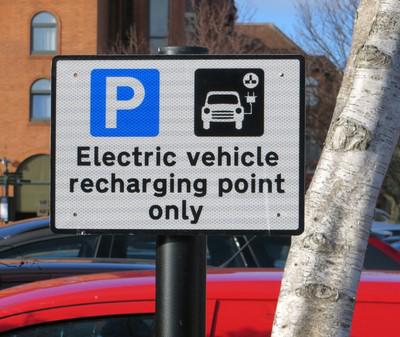Global automakers Nissan Motor Co Ltd, General Motors Co, Volkswagen AG and Ford Motors are currently battling it out to be the first to double the driving range of small mass-market electric cars such as the Nissan Leaf. Contenders are predicting that technological advances in the coming years by battery suppliers, such as LG Chem Ltd, will boost the consumer demand and keep them at par with leading auto giant, Tesla Motors.
As it currently stands, there are four main contenders that are in the race to build the first affordable electric car that can reach up to 322 kilometers from a single charge.
Mass-market electric cars could soon be more expensive
It is predicted that by doubling the range of relatively affordable mass-market electric cars, automakers will be forced to increase the ticket price and pass on the added manufacturing costs to consumers.
For example, when comparing the relationship between driving range and the cost of electric cars, the base model of the Nissan Leaf has a driving range of 135 kms and is currently priced at $29,010 USD. A Tesla Model S, on the other hand, can reach up to 427 kms on a full charge and starts at $81,000 USD before tax incentives.
The downside of the more affordable mass-market electric cars currently available is that they generally can only manage 121 km to 137 km on a single charge. This distance can be even less when non-essentials strains such as air conditioning and heating are added into the mix.
Limited driving range still a major concern for potential EV consumers
This shortcoming often causes ‘range anxiety’ in drivers who need to travel long distances without the comfort of EV charging station being available on their route. This concern amongst consumer is a sales obstacle that many retailers and manufacturers of mass-market electric cars are facing.
This is also the primarily the reason why there were only around 67,700 electric cars sold in the United States in 2014; approximately 0.4 percent of the 16.5 million new vehicles sold in the country.
The pressure is now on as it is up to EV manufacturers to find ways to attract more of the market and increase their sales dramatically by 2018. It is expected that by this time California and eight other states will begin putting more pressure on the EV industry to satisfy higher sales targets for zero emission and electric vehicles. In addition to this, federal regulations on cutting fuel consumption and greenhouse gases will be more stringent by 2018.
Elon Musk speaks on the electric vehicle driving range and benchmarks
CEO of Tesla Motors, Elon Musk, has reportedly said that “200 miles is the minimum threshold” in order to put the consumers’ mind at ease regarding EV driving range. There is “a sweet spot around 250-350 miles that’s really ideal,” he added.
Musk has promised that it won’t be long before they develop a more affordable EV model. He says it will sell for approximately $35,000 USD and be capable of a minimum of 200 mile driving range. According to Musk, Tesla’s contribution to mass-market electric cars is scheduled to start production in mid-to-late 2017.
On its part, General Motors says it is planning to test run its 200-mile electric car, the Chevrolet Bolt, by late 2016.



